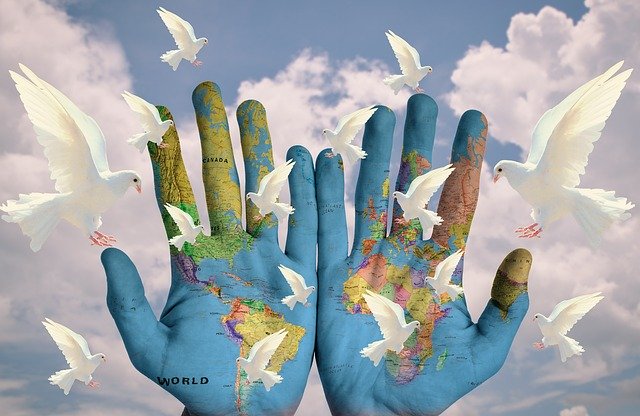
One day this week when I was thinking about all the misery and conflict that ceaselessly rains down on us, suddenly a memory popped into my mind that made me explode with a huge laugh. I pictured the scene clear as day. I was with a group of friends and one of them asked Henry what he would say to people if he was king of the world.
He thought for a moment, got a ferocious look on his face, puffed himself up, took in a giant breath, and bellowed at the top of his lungs, “STOP IT!”
I think we could use a King Henry today! We’ve all had about enough of this fear-filled, monotonous, rancorous routine.
Later, I ran across a much softer and more gentle piece of advice for affording ourselves relief from the oppressiveness of the times. It was an article on practicing loving-kindness meditation.
As I contemplated it, I thought about the idea that our realities, both personal and universal, rise from our thoughts. How we think about ourselves, the people in our lives and all the others in the world determines how we’ll behave toward them, how we’ll see them, how we’ll react to what they do. Collectively, our thoughts shape the world.
Mark Twain thought about this, too. Once he wondered, “What would happen if all the people in the world laughed at the same time?” Think about a time when laughter spread in sudden contagion through a room you were in. Nobody knew what so funny, but they couldn’t help but laugh because, well, it was just so hilarious to see everybody unable to stop.
I thought about the hundred monkeys story, where one day a monkey on an island starting washing his food in the sea before he ate it. The other monkeys copied him, and when the hundredth monkey joined it, the practice suddenly erupted on a far-away island, too.
What if practicing loving-kindness meditation worked like that? What if, by taking 10 or so minutes a day to send loving wishes to ourselves and each other, we became a link in a chain of loving-kindness that spread peace and joy all over the world?
It’s easy enough to do. I’ll show you in a minute. But first, here’s what loving-kindness means. It comes from a Pali word metta. Its meaning embraces the concepts of friendliness, goodwill, benevolence, fellowship, inoffensiveness and non-violence as well. In an article titled, “Metta: The Philosophy and Practice of Universal Love,” Acharya Buddharakkhita says, “True metta is devoid of self-interest. It evokes within a warm-hearted feeling of fellowship, sympathy and love, which grows boundless with practice and overcomes all social, religious, racial, political and economic barriers. Metta is indeed a universal, unselfish and all-embracing love.”
Sounds pretty powerful doesn’t it?
The process itself is simple. As with any meditation, you begin by relaxing in a comfortable position, with eyes closed, in a place where you can be undisturbed. Then, putting a gentle smile on your face, let go of any negative thought or feeling. Begin by saying to yourself,
May I be safe from danger;
May I be healthy;
May I be happy;
May I live with ease.
Just breathe for awhile and sincerely wish yourself these blessings, repeating them until you feel satisfied.
Next practice sending your wishes for safety, health, happiness and ease to your circle of loved ones, imagining each of them one at a time and speaking your wishes to him or her directly in your mind.
The next stage is to move on to those people whom you know casually—neighbors, coworkers, acquaintances, members of your community.
And finally, you send your well-wishes to everyone, everywhere, as sincerely as you can.
In the article I read this week, the author suggested writing the words instead of silently repeating them. Writing, she said, can can instill them in our subconscious in a way that seems more effective than simply reading, hearing, or speaking them does.
Try whatever way appeals more to you.
Personally, I find the practice very soothing. It’s a way to stop the world’s madness from infiltrating your thoughts for a while. And with continued practice you’ll find your world truly does become a more peaceful, happier, friendlier place.
And who know what might happen if enough of us send wishes for well-being to ourselves and each other?
Certainly, it’s worth a try.
Warmly,
Susan